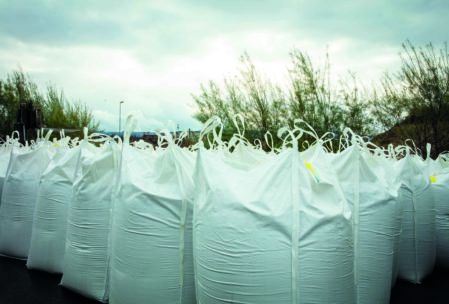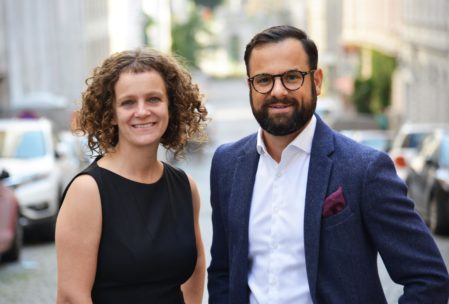Three years ago, the online trading platform SECONTRADE was founded to reform the trade of secondary raw materials. What began as a vision is now an important and, above all, crisis-proof component of the circular economy in Austria and Europe. Raw material recycling is more important than ever in the battle against climate change and raw material scarcity.
26,400 tonnes of secondary raw materials were traded by 200 users from 23 countries: this is the successful result of the online trading platform SECONTRADE during the past three years. Since its foundation by UFH Holding in 2018, the first European trading platform of its kind has grown from a vision to an important player in the circular economy in Austria and Europe. Every day valuable raw materials, e.g. from old appliances, scrap metals and plastic waste, can be bought and sold from recycling companies, raw materials traders or steelworks. And this is completely crisis-proof in times when stationary trade is only possible with restrictions.
For Brigitte Reich, Managing Director of SECONTRADE, the crisis year 2020 in particular has shown that the trading platform’s offer is of high relevance. At SECONTRADE, they now want to take the next step from the initial phase, because the acceptance and demand for secondary raw materials is also growing in the industry, as Reich explains: “Last year in particular, we saw how much potential there is in the SECONTRADE model. We offer high-quality secondary raw materials flexibly and independently of other economic areas. In times of only limited trade options and partially or even completely interrupted supply chains, industry as our end customer is increasingly recognising the value of local raw material offers. This is exactly where we come in with our platform and deliver it transparently and well documented as well as traceable in terms of origin.”

Secondary raw materials are also gaining in importance apart from climate protection
It is clear that a properly functioning circular economy, and therefore the recycling of valuable raw materials, is an important factor for climate protection. The European Green Deal has brought the circular economy to the centre of political consciousness in Europe. In this context, secondary raw materials not only protect the environment many times over, but the reuse of certain already very scarce raw materials is also an important stabilising factor for the raw materials market, as Brigitte Reich further explains: “By recycling every tonne of steel and iron scrap, the mining of 1.5 tonnes of iron ore, which is becoming increasingly difficult anyway, is avoided. Moreover, one tonne of recycled steel scrap saves the same amount of CO2. Steel scrap in particular is a classic example of loss-free recycling. It brings significant advantages for environmental protection and, by closing supply gaps, at the same time it stabilises prices on the market, as the raw material required for this purpose becomes scarcer more slowly and therefore it becomes less quickly more expensive.” According to Reich, the cycle for steel scrap is as good as closed today, but other materials such as aluminium and alloys can also be remelted and remoulded with today’s processes almost without any loss of quality.
Opportunities are increasing, recycling is becoming more complex and industry is changing
This also means that the process of disposal itself is becoming more and more complex and elaborate in order to really be able to exploit all the possibilities for recycling raw materials that exist today. This is particularly affecting the waste management companies, which are the first and most important link in the chain of recycling raw materials, as Robert Töscher, Managing Director of the UFH Group, explains: “The recycling of important scarce raw materials has changed a lot in recent years and has become more complex. On the one hand, this is very pleasing because today, compared to the past, many materials are recycled and therefore more valuable raw materials are also protected from mining. At the same time, this also increases the requirements for recycling companies. With SECONTRADE, we were one of the first to take an important step in this direction in Austria, which many others have followed.” According to Töscher, however, in the future not only new technology will be required but also well-trained skilled personnel in the recycling industry in order to keep up with the demands of tomorrow. “If you consider that a certain amount of secondary raw materials have to be included in new products in the future, this is certainly a big challenge that we have to face,” says Töscher.


